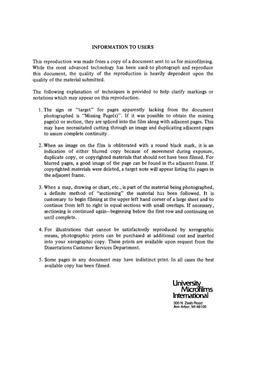| dc.contributor.author | Rolfe, Robert Joseph, | en_US |
| dc.date.accessioned | 2013-08-16T12:28:55Z | |
| dc.date.available | 2013-08-16T12:28:55Z | |
| dc.date.issued | 1983 | en_US |
| dc.identifier.uri | https://hdl.handle.net/11244/5138 | |
| dc.description.abstract | The objective of this study is to identify factors used by the judiciary in distinguishing between sales and leases. This was done by developing a logit model based on actual lease decisions. Results of this analysis indicate that the variable measuring the relationship between option price and asset's expected value explained 81.3% of the cases in the analysis sample and 100% of those in the hold out sample. Interpretation of this factor's impact upon the decisions revealed that the probability of a sale fell below .5 when the option exceeded 68.07% of the asset's expected value. This implies that courts generally did not reclassify lease transactions unless the relationship dropped below that amount. In so doing, they did not appear to require that option prices equal anticipated values, as stipulated by the Internal Revenue Service in its pronouncements. No distinct patterns were detected over time or among judicial forums. | en_US |
| dc.description.abstract | By demonstrating that the judiciary has not required option prices to equal expected values, this study has attempted to aid potential lessors and lessees in interpreting the administrative and judicial opinions they are required to follow. | en_US |
| dc.description.abstract | Leveraged leases have been an effective device for transferring the benefits of investment tax credits and accelerated cost recovery system from taxpayers who do not have sufficient tax liabilities to fully utilize them to those that do. Due to the liquid nature of these benefits, the Internal Revenue Service has examined lease transactions to determine whether they were actually conditional sales. Potential lessees and lessors have been forced to analyze complex and often contradictory judicial decisions and administrative rulings to avoid reclassification of the agreement as a sale, thereby eliminating the tax advantages of leases. | en_US |
| dc.format.extent | vi, 166 leaves : | en_US |
| dc.subject | Business Administration, Accounting. | en_US |
| dc.title | An empirical investigation into the judicial classification of transactions as sales or leases for Federal income tax purposes. | en_US |
| dc.type | Thesis | en_US |
| dc.thesis.degree | Ph.D. | en_US |
| dc.thesis.degreeDiscipline | Michael F. Price College of Business | en_US |
| dc.note | Source: Dissertation Abstracts International, Volume: 44-02, Section: A, page: 0520. | en_US |
| ou.identifier | (UMI)AAI8314788 | en_US |
| ou.group | Michael F. Price College of Business | |
